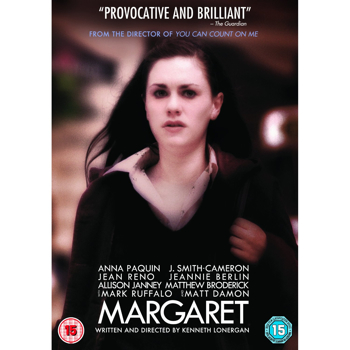Posts reviewing movies about depression are consistently among the top pages visited on this site. That fact surprised me, though I suppose it shouldn’t have. For all the insight I gain through reading, I connect instantly with a good dramatic portrayal of someone struggling with emotional pain and dysfunction. It’s encouraging to discover more and more films that present characters with depression and bipolar disorder sensitively but also with powerful drama. The movies I describe in this post explore depression as you find it in the real world, combined with the full array of painful feelings and at times other disorders. The human mind doesn’t fit psychiatric definitions, and these films bring out the complexity of troubled lives.
Ghost World
Ghost World follows two teen-aged girls, Enid (Thora Birch) and Rebecca (Scarlett Johansson) waiting for life to happen after graduation from high school. They observe their town with biting sarcasm for the people and culture around them and occasionally play pranks to see how people will react. Enid, in particular, feels little connection emotionally, drifting from incident to incident, until she meets a much older record collector (Steve Buscemi) whom the two girls lure to a restaurant with a phony dating add. They just want to see the reaction of someone they view as a lonely loser when he realizes that no one is going to show up. Yet through watching his disappointment and sensing a mind and feeling like hers, Enid is attracted to him as “the opposite of everything I hate.” She arranges to meet him, and gradually they shuffle into each other’s lives but are never able to talk openly about feelings. There is the lingering sense that they could become lovers, but neither acknowledges that openly. The Buscemi character soon finds a woman his own age with whom he starts a relationship. Enid is stung and then goes on to alienate her friend Rebecca. She is left with her own depression and loneliness. In the end, she boards a phantom bus which appears only when someone sits to wait for it in a certain spot. It takes her, the sole passenger, off to unknown destination. This is a wry film of quirky humor that manages to hit the truth of a depressive solitude. It captures the feeling of being lost without strong feelings that can help you find meaning and a place in the world.
Phoebe in Wonderland
Phoebe in Wonderland is about an young girl (played by Elle Fanning) who develops compulsive behaviors that make her an outcast. Her outbursts of anger, swearing and spitting make her the problem child in the family, in the classroom and among her peers. No one knows how to handle her strange behavior. Then she finds an eccentric drama teacher (Patricia Clarkson) who casts her as the lead in the school production of Alice in Wonderland. The teacher at once picks up on the uniqueness and imagination of the girl that fits in well with the twisty and illusive realities of Lewis Carroll’s Wonderland. But her separation from others leads to depression and a non-fatal jump from the catwalk above the stage. This is a film full of the humor of Phoebe’s imagination, as she draws all the characters of her daily life into her fantasies. At the same time, it brings out the full drama of a mother (played beautifully by Felicity Huffman) trying to respond to her daughter’s illness with love, only to find the frustrating limits of her ability to get through.
Waking Madison
We first see a young woman (Sarah Roehmer) announcing to her video camera that she’ll give herself 30 days to figure out her life or end it. From there we go through a dream-like sequence of visits to her psychotherapist (Elizabeth Shue), confrontations with an assortment of young women she meets at a mental hospital and strained efforts to communicate with her parents. She drifts through a haze of depression, an attempt at suicide and a series of scenes in which she dissociates from the many conflicting strains of her personality. I found this a mesmerizing journey into the narrowed awareness of a depressed mind. In the end, Madison finally confronts the reality of her life as she pulls together its many stranded dimensions and wakens to who she is.
The Piano Teacher
It’s hard to like the films of German director Michael Haneke, but it’s hard to take your eyes off them. This film probes deeply into the troubled psyche of a fierce woman trying to survive a rigid perfectionism in her work as a concert piano teacher, the self-loathing of depression and her dependence on a controlling mother. She becomes obsessed with one of her students and attempts a to form a relationship with him. But she doesn’t know how and tries to base it on her strange fantasies of sex, her domineering role as a teacher and what seems like an unconscious confusion of love and suffering. Isabelle Huppert is the remarkable actress who brings these harsh qualities together in an unforgettable character. She portrays a climactic act of violence against herself as a twisted revenge against the young lover she cannot form a real bond with. This is not a pleasant movie to watch, but only because it reveals too well the ugliness of the inner pain of depression and obsessive feelings.
Margaret
Lisa Cohen (Anna Paquin) is a 17 year-old prep school student who witnesses an accident that brings up all the guilt, anguish and depression that has been just below the surface for some time. She believes that by distracting a bus driver, she caused a fatal accident at a crowded Manhattan intersection. The woman who was mauled by the bus dies in Lisa’s arms after mistaking the teenager for her own daughter. Lisa tries to contain her feelings about the incident but finds herself erupting in angry confrontation with everyone she reaches out to. She tries to atone for what she has done by instigating a lawsuit, but in the end the suit provokes an outburst in which she says she killed the woman. She has unloving sex with a student, then a teacher but can’t find any way to be at peace. Angry and frustrated with her actress mother, she finds rejection at the hands of her father who now lives across the country with another woman. Only at the end, while listening to a beautiful opera duet with her mother can she break through the screen of guilt and shame. There is no easy resolution to this film, but its powerful portrait of the emotionally troubled depths of a young woman is unforgettable.
Mr. Jones
Richard Gere plays Mr. Jones, a man who wants to reveal nothing about his past, and who overwhelms people with his charming wit and manic wildness. He is always on the edge, at one point turning a gesture of friendship to a fellow construction worker into a dance on a roof beam and the temptation to fly over the street below. In addition to his manic exploits, Mr. Jones also plunges into deep depression. While still recovering from one such episode, he tries to help an elementary school kid with his homework but can’t figure out the arithmetic. It’s one of the few accurate portrayals of the effect of depression on the ability to think that I’ve ever seen. There is a fairly realistic depiction of treatment in a mental hospital and his effort to charm his way out of involuntary confinement through his courtroom eloquence. Jones seduces his psychiatrist (Lena Olin), only to set off a tense clash between them. The romantic plot is well done and never simplifies the problem of trying to find a relationship with someone who is bipolar.
Frances
This is a fictional treatment of the life of 1940s film star, Frances Farmer, whose life crashed between victimization by the industry and outbursts of manic and depressive behavior. Played by Jessica Lang, Frances is a talented, glamorous actress who gradually succumbs to the unpredictable wildness of her behavior. After early success, she is eventually ostracized from films and, after drunkenly wrecking her car and fighting with police, committed to a mental hospital. She is rescued from it by her lover (Sam Shepard) only to run into trouble with him soon after. Eventually, she endures a lobotomy and ends up alone. But the film brings out her inner strength rather than collapse at the misunderstanding and manipulation by others. Lang gives a powerful performance of the self-destructive highs and lows of Farmer’s life.
Pollock
I’ve never seen an actor bring such intensity as Ed Harris does to the portrayal of depression, alcoholism and mania, the inner tortures that drove the great painter Jackson Pollock to an early death. In this film, Pollock is obsessed with his art to the point of excluding or sacrificing every relationship. The famous abstract expressionist canvases become characters themselves, as they draw the artist into a visual vortex that seems to mirror his inner state. Harris brings out the sympathetic and scary dimensions of Pollock’s personality, and Marcia Gay Harden is equally intense as his artist wife, Lee Krasner. The film captures the terrible tension between creativity, with its release from pain, and bipolar depression that drives the painter to self-destruction.
Vincent & Theo
Like Pollock, Robert Altman’s Vincent and Theo captures the crisis of a great creative talent struggling to work through inner violence and emotional pain. It’s the dual story of Vincent Van Gogh and his brother Theo, who devoted his life to supporting Vincent’s painting. Tim Roth captures the combination of longing, bewilderment and frustration of the artist’s attempts to hold onto relationships, whether with his mistress, his friend Paul Gauguin, his brother or his patrons. Everything comes back to his painting, which drives him obsessively. There is an unforgettable scene in which Vincent is fighting the wind while trying to paint a field of sunflowers. The wind whips furiously across the flowers, knocks his canvas about and ultimately leads him to destroy his painting, pack up and leave. But the wind shakes the sunflowers in a way that brings out the fantastic character of them Van Gogh was later to capture in his paintings. It also shakes and disrupts Vincent, much as his inner furies keep fighting his creativity and his life.
The Whole Wide World
Robert Howard, played in this film by Vincent D’Onofrio, was one of the early pulp fiction writers who produced dozens of fantasy stories in the 1920s, many of them about his most famous hero, Conan the Barbarian. This film is narrated as a reminiscence of his turbulent life with bipolar illness by the now elderly Novalyne Price Ellis, played by Renee Zellweger, who had tried to have a romantic relationship with him decades earlier. Living at home in a small Texas town and caring for his mother, Howard writes his stories while speaking aloud all the dialogue of his fantasy characters. He strolls about town wearing a huge hat and courts Novalyne with promises of endless sunsets. Gradually he comes to depend on her as a partner in his visions of an unattainable future. He is incapable of a real relationship, however, as his moods shift from exuberance to depression, and Novalyne takes up with a more conventional man. Feeling betrayed and desolate, Howard eventually takes his own life. The film is suffused with a sense of tenderness and understanding for a troubled human being. It is also full of scenes of natural beauty that provided Howard with the settings of his dreams.




wow, looks like a great list of films…those I’ve seen are some of my fave films ever and the rest I’ve just put in my netflix queue…some of them are available for instant viewing which is always nice.
thanks very much.
Hi, Gianna –
Great to hear from you! Thanks for the reminder about Netflix. I should mention availability there – Netflix streaming is the best deal in movies that I know of.
John
John,
Your movie reveiws are great…but I don’t know that I could/would watch them. When I am feeling good, I tend to avoid anything that reminds me of the dark veil waiting to fall back over me…and when I am feeling bad I am afraid that focusing on the hopelessness that is depression (for me) would only spiral me further down. But that’s just me: I tend to isolate my condition because I don’t want to dwell on it. I don’t really want to hang around others who are depressed so group therapy or a support group is out. But that is why I value your website/posts so much: you GET it. And even though I choose to fight this battle alone, I know that I am truly not alone, and that there are people out there who understand. So, thanks for doing what you do!
Hi, Sal –
Thanks for your kind words. I understand the concern about spiraling down as a result of watching films like these. For some reason, I don’t react that way – the stories are somehow energizing and hopeful because the people in them keep on struggling. I tend to react the way you do when it comes to blues music or pop songs that seem to burrow into depression without a breath of air coming in.
John